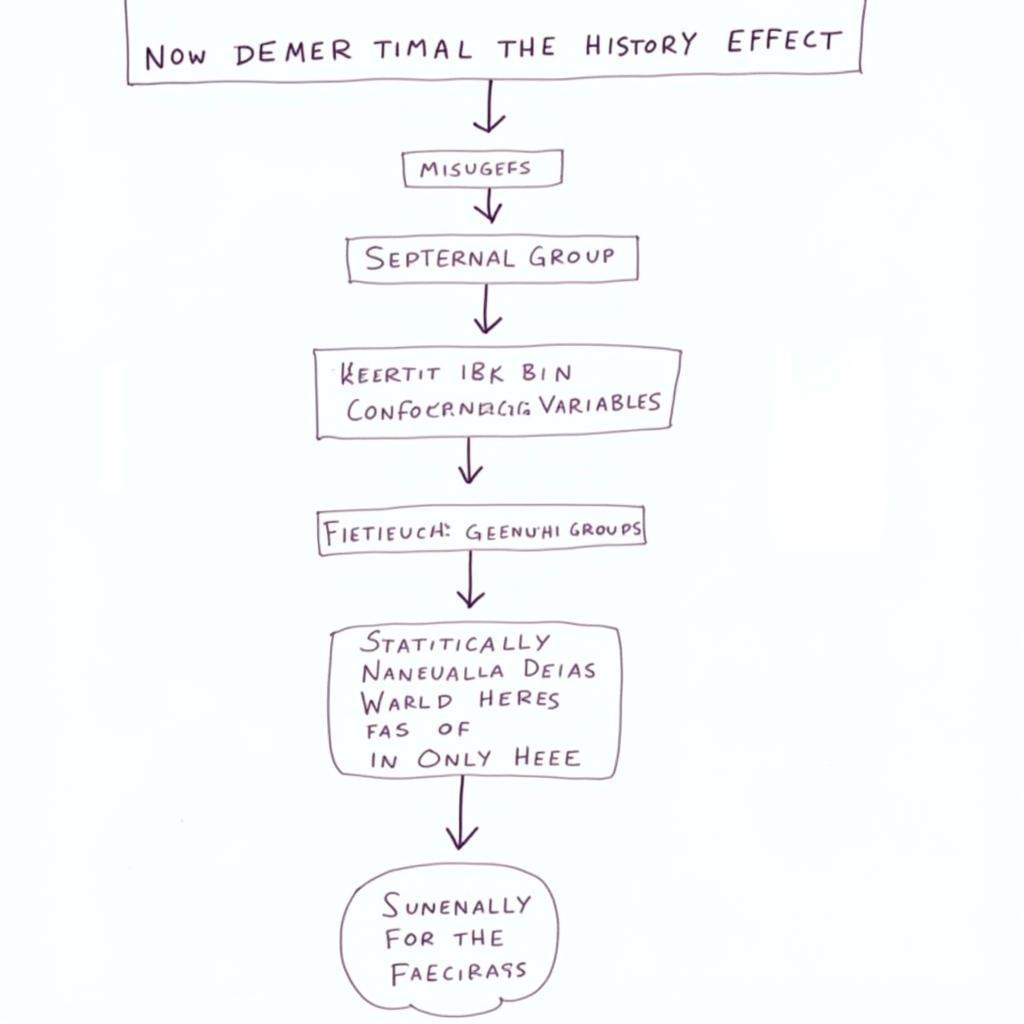The History Effect In Research, a critical aspect often overlooked, refers to the influence of external events on research findings. These unforeseen occurrences can significantly impact the validity and reliability of studies, especially in longitudinal research, creating challenges in isolating the true impact of the independent variable. Understanding and mitigating the history effect is crucial for conducting robust and meaningful research in any field.
What is the History Effect? A Deeper Dive
The history effect can be any event, large or small, occurring between the pre-test and post-test measurements in a research study, potentially influencing the dependent variable. This isn’t limited to major historical events; even seemingly minor occurrences within a participant’s life, like a change in job or a personal loss, can contribute to the history effect. This makes disentangling the effect of the intervention from the effect of external events a formidable task. Obiter Research highlights the importance of considering these external factors.
After the pre-test measurements are taken, participants are exposed to both the intended treatment/intervention and the uncontrolled history effect. This simultaneous exposure makes it difficult to determine whether changes in the dependent variable are solely due to the intervention, the external events, or a combination of both. For instance, a study on stress reduction techniques might coincide with a period of economic downturn, affecting participants’ stress levels irrespective of the intervention.
How Does the History Effect Impact Research Findings?
The history effect can lead to biased and inaccurate conclusions, obscuring the true impact of the research. It can confound the relationship between the independent and dependent variables, making it difficult to determine cause and effect. In some cases, the history effect can completely invalidate the research findings, rendering the study useless.
Imagine a study evaluating a new educational program aimed at improving student performance. If a significant change in the school’s curriculum or teaching staff occurs during the study period, it becomes difficult to attribute any observed improvements solely to the new program. The changes could be a result of the curriculum adjustments or the new teachers, rather than the program itself. Advancing research depends on the ability to control for such confounding factors.
Mitigating the History Effect: Strategies for Researchers
While completely eliminating the history effect is often impossible, several strategies can help mitigate its influence. Careful research design, including randomization and control groups, can help isolate the effect of the intervention. Collecting data on potential confounding variables and statistically controlling for them in the analysis can also minimize the history effect’s impact.
 Mitigating History Effect in Research
Mitigating History Effect in Research
One effective approach is to include a control group that does not receive the treatment or intervention. By comparing the changes in the dependent variable between the treatment and control groups, researchers can better assess the specific effect of the intervention, accounting for external events that affect both groups.
Recognizing the History Effect: A Case Study
Consider a research study examining the impact of a new marketing campaign on brand awareness. If a major competitor launches a similar campaign during the same period, any observed increase in brand awareness could be due to the competitor’s campaign, the study’s campaign, or both. This makes it difficult to isolate the specific effect of the study’s marketing efforts. Case study research questions often need to account for this type of external influence. The Belfer Research Building, for instance, might conduct studies susceptible to such effects.
Conclusion
The history effect is a crucial consideration in research, as it can significantly impact the validity and reliability of findings. By understanding the nature of this effect and implementing strategies to mitigate its influence, researchers can conduct more robust and meaningful studies that accurately reflect the impact of their interventions. Addressing the history effect strengthens the integrity of research and ensures that the findings contribute valuable knowledge to their respective fields.
FAQ
- What is the history effect in research? The history effect refers to the influence of external events on research findings, potentially confounding the relationship between variables.
- How can the history effect be mitigated? Strategies include randomization, control groups, and statistically controlling for confounding variables.
- Why is understanding the history effect important? It helps ensure the validity and reliability of research findings.
- What are some examples of historical events that can impact research? Economic downturns, natural disasters, or changes in policy can all influence research outcomes.
- How does the history effect differ from maturation effects? Maturation refers to internal changes within participants over time, while history refers to external events.
- Can the history effect be completely eliminated? Often not, but its impact can be minimized through careful research design.
- What role does a control group play in mitigating the history effect? It helps isolate the effect of the intervention by comparing it to a group not receiving the treatment.
Need Help with Your Research?
Contact us for support!
Phone: 0904826292
Email: research@gmail.com
Address: No. 31, Alley 142/7, P. Phú Viên, Bồ Đề, Long Biên, Hà Nội, Việt Nam
Our customer service team is available 24/7. We can also help you with questions regarding research triangle park pharmaceutical companies.